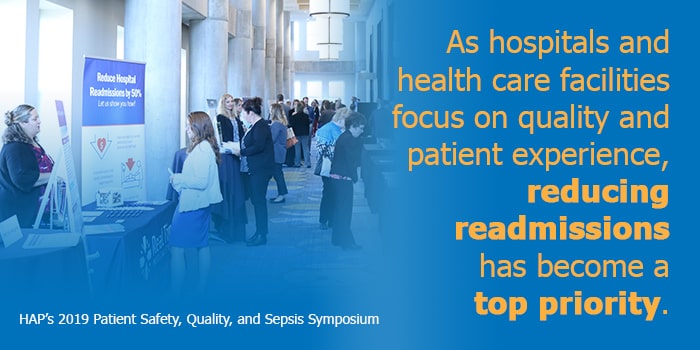When a patient discharged from a hospital is readmitted within 30 days, it is known as a hospital readmission. Many times hospital readmissions can be avoided.

Readmissions may occur as the result of:
- Premature discharge
- Poor communication during the discharge process, including transfers to another facility
- Less than optimal care coordination before and after discharge
- Challenges caring for a patient with complex medical needs at home or in other care settings
- Patient social determinants of health such as access to transportation, medications, and a support system
HAP is working with Pennsylvania hospitals to improve patient care transitions and reduce readmissions by:
- Supporting hospitals to focus on reducing readmission rates as a top priority
- Providing services that share best practices to improve processes and policies surrounding readmissions
- Developing tools for hospitals to reduce readmissions rates
- lncreasing patient and family engagement
- Connecting hospitals, post-acute providers, and patients with community organizations
HAP Contacts
For additional information about participating in the Readmissions Reduction Project, or if you have a best practice to share, please contact Beth Murray, project manager. Media inquiries should be directed to Kim Yakowski, manager, media relations.